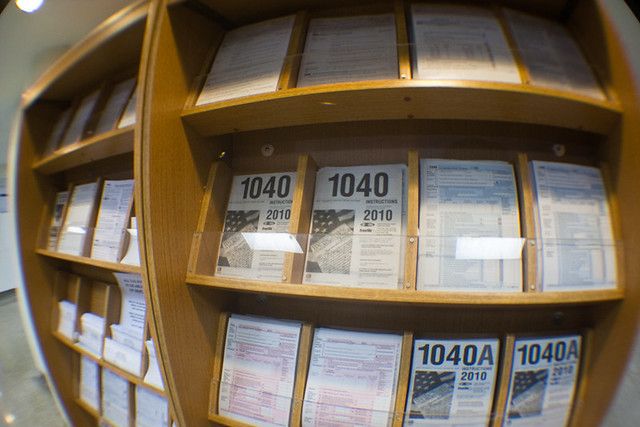Tips For The Taxed: Part II

Telling Tips is a series of articles from local experts to help you save money, make better decisions and plan for a better future.
TELLING TIPS: Here’s a tip: You can read part one of the series, “Tips for the Taxed: Part I,” by clicking here.
Tax Returns: Should be kept forever as they are a picture of your financial history — when you were married, bought a house, added to your family, and so much more. Scan all your important documents into your computer, and then back up your entire computer every night for about $60/year with a program such as Carbonite.
Charitable Contributions Of Property: Such as clothing, toys, household goods, and appliances, with a total value of $500 or more, are reported on Form 8283 [PDF]. You must get a receipt from the charity which details your donation, for example, three pairs of pants, or five skirts (also shoot a photo of your items). You can estimate the value using one of this online website. Make sure the receipt from the charity has their name and address on it, as well as a signature.
Mortgage Interest: Is a big deduction for many taxpayers. You can usually include in this figure late charges, prepayment penalties, and prepaid interest. Not deductible would be using your home equity debt to purchase tax-exempt securities, or home interest while living in a house before the final closing.
Medical Expense: Includes medical premiums (Medicare, AARP Supplemental, dental insurance), long-term care insurance, dental bills, doctor prescribed weight-loss programs, transportation costs (taxis). Check out IRS Publication 502.
- Loophole: You can include medical expenses you paid for an individual who would have been your dependent except that they had gross income of $3,700 or more — such as a parent, or older child living at home.
First-Time Homebuyer Credit Repayment: If you took advance of the interest-free loan to purchase your home in 2008, and are repaying $500 every year now, the IRS is no longer mailing a statement, but you can look up your repayment obligation online.
Free Is Good? If your adjusted gross income is $57,000 or less, and you have a simple return, save $80 to $150. Check out: the Federal Free file and the NY State Free file.
College Loan Interest: If the child is responsible for the college loan, and the parent makes the payments, the payments are considered a gift to the child, and the child can deduct up to $2,500 of student loan interest, provided the child is not claimed as a dependent. If the parent is not responsible for the loan, the parent cannot claim the deduction.
Education Deductions: If you itemized, you can claim an employee business expense for education directly related to your current job, including tuition, books, supplies, and travel. If you don’t itemize, you can deduct tuition and fees, up to $4,000 (within income limits).
Child Care: Is not just for children, but also for a dependent parent. In either case, you will need to show the name of the caregiver, their address, phone number, identification number, and the amount you spent.
Spouse to File Separately? Filing married-filing-separately may save tax dollars if both of you have separate income, and one of you has substantial medical or employee business expenses (such as a policeman or teacher). Why? The floor of 7.5 percent medical or two percent miscellaneous will apply to your separate incomes, not to the higher joint amount.
Remember: A journey of a thousand miles starts with the first step; so too, the journey to complete your tax returns starts with your first headache.
Have a good week.
Joseph Reisman, of Joseph S. Reisman & Associates, has been serving tax prep and business accounting expertise from his Coney Island Avenue office for more than 25 years. Check out the firm’s website.




